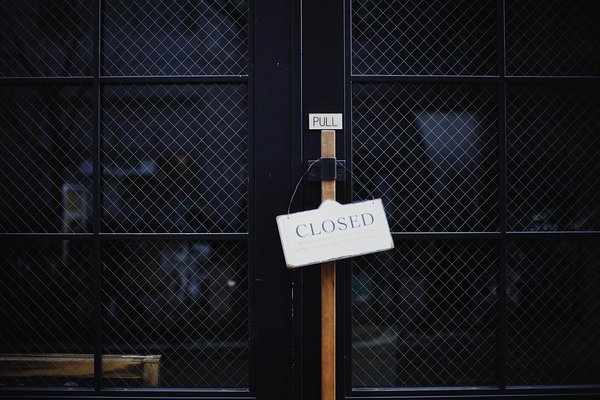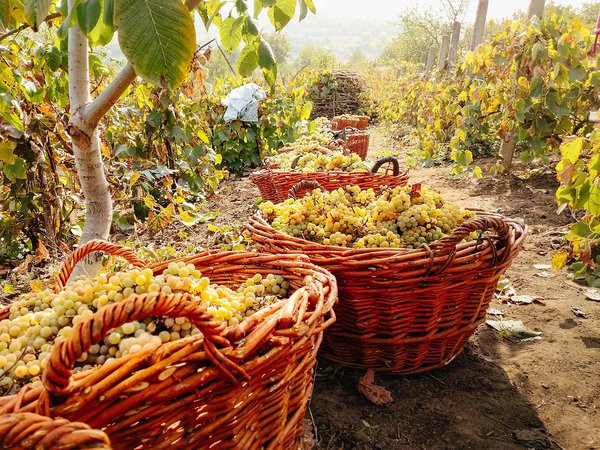Blockchains in the Food Supply Chain during a pandemic - SOFIE to the rescue!
These times have been especially difficult on a global scale. Food industry was highly affected by the pandemic that started in the beginning of 2020.
There were two main impacts of the pandemic to the Food Supply Chain:
- Processes and human interactions have been hugely altered due to restrictions in goods and people transportation.
- Many companies and production facilities were forced to pause their operations.
From technology’s point of view, these two cases form suitable examples on how Blockchains could be utilized to assist in mitigating this situation.
To refresh your memory, Blockchain:
- allows for the complete history of a product from start to finish. From every time a product is modified and the documentation of the transaction, this creates full transparency and knowledge.
- has the potential to build trust in the supply chain by creating a permanent, digitized chain of transactions that cannot be altered. The goal is for producers like farmers, distributors, and retailers to all access comprehensive product data in near real-time.
Therefore, by using Blockchain, it seems that the two pandemic impacts on the Food Supply Chain mentioned above could be tackled in an effective way.
- The first impact, i.e., social distancing and the need for details on hygiene-related aspects of a product and its packaging (e.g., who has touched the package along the chain), could be mitigated by the automatic, yet trusted, way of moving products from source to end consumers that is being offered through a Blockchain.
- The second impact, though, seems to be trickier. When an entity that participates in the Food Supply Chain pauses its operations, the dependent participants are affected and will, thus, try to find alternate entities to cooperate with in order to continue their operation. This, however, even if they manage to find alternative partners, implies that quality, certification, and trust issues are -again- to be resolved; something that is quite time consuming. The whole process of “integrating” new partners in the Food Supply Chain causes delays in the whole chain which, obviously, affect the end consumers.
If the pandemic has made anything clear, it’s that it is essential for food companies to build sophisticated contingency plans to respond quickly and safely to disruptions in their supply chain. In this high-risk environment, it’s also especially important to ensure that new partners are certified and meet quality standards. With a high percentage of retailers yet to digitize their operations, sharing this quality-related information appears to be a significant obstacle towards this direction.
Blockchain could assist:
Growers and producers: Facilities using Internet of Things infrastructure can upload product related data and information that form a digitally available proof of their product quality.
Food logistics partners: Logistics organizations can store and access quality assurance data, such as testing analyses and inspection results. Problematic products could be monitored, flagged and suitable measures could be taken.
Retailers and suppliers: With increasing consumer and retailer focus on the integrity of goods, information collected along the whole Food Supply Chain helps mapping the product journey with compliance statuses and supplier credibility.
In a time when supply chain disruptions are becoming more frequent and the speed at which companies can replace a broken link could make the difference between staying in business or shutting down, adopting a platform to simplify and accelerate the approval process could be a critical factor in a business’ success.
SOFIE provides a framework that could help towards building such platforms. A reference implementation of such a platform is the Food Supply Chain pilot that is part of the SOFIE project.
The Food Supply Chain pilot in SOFIE considers the field-to-fork route of a food product (i.e. table grapes) over a number of heterogeneous business segments and corresponding IT infrastructures which are deployed along the supply chain path. The system makes use of SOFIE federation architecture and framework components to securely manage, store and transform the collected data, so as to optimize supply chain collaboration and collaborative advantage among participating companies, e.g. the gathering, exchanging and improving of resources and their management. It makes use of a private Ethereum blockchain, named as “Consortium ledger”, to store all performed transactions, as well as other critical data and metadata, which is necessary to achieve traceability of products over the supply chain. Each recorded transaction will be linked with various metadata (as those result after transforming data which is collected from IoT segments and actors), so being able for an interested (and authorized) entity not only to get full details of the transaction at any later time but also correlate it with other relative information.
In relation to the COVID19 impacts, thanks to the use of the SOFIE framework components and the Consortium ledger, the pilot’s platform is offering to the participating entities (producers, logistics companies, suppliers, transportation companies, retailers, supermarkets):
- a traceability service used by the consumers to access the full history of grapes from the field to the supermarket shelf.
- an audit service used by the supermarket company to verify the integrity of data which is collected as grapes are transferred over the supply chain as well as relevant business rules (driven by this data) which have been agreed with the suppliers.
- the ability to replace any partner that has been part of the supply chain but for any reason has paused his operation with another partner that is already registered in the Consortium ledger that has a proven record of offering high quality services, as reported in the Blockchain.
For all the above reasons, we firmly believe that Blockchain technology could be of great assistance when trying to overcome the effects that the pandemic caused to the Food Supply Chain across the globe. SOFIE’s Food Supply Chain pilot is an excellent example of this!
Illustrative photo 1 by Masaaki Komori, Unsplash.
Illustrative photo 2 by Eugene Zaycev, Unsplash.

